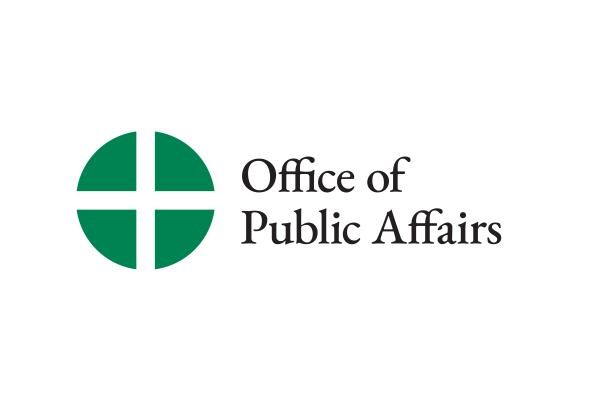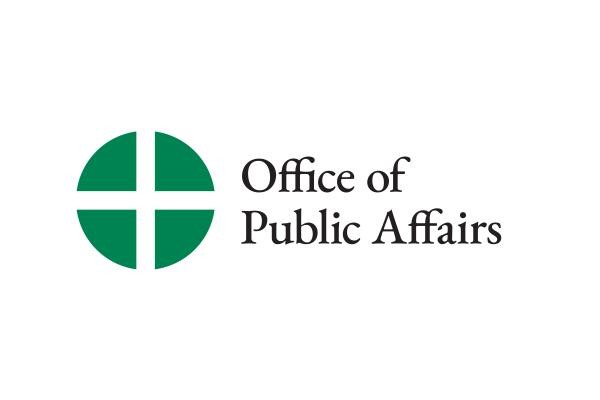Methodists, Catholics Discuss Convergence in Theology and Rites
WASHINGTON, (March 5, 1997) -- The United Methodist-Roman Catholic Dialogue, charged with bringing 30 years of theological conversations into the life of parishes and congregations around the country, met at St. Paul's College here, February 27-March 1. The on-going task of the Dialogue is to prepar
WASHINGTON, (March 5, 1997) -- The United Methodist-Roman Catholic Dialogue, charged with bringing 30 years of theological conversations into the life of parishes and congregations around the country, met at St. Paul's College here, February 27-March 1. The on-going task of the Dialogue is to prepare materials which will bring home to the people in the pew the results of ecumenical conversations such as the international World Methodist Council-Vatican Dialogue and the four rounds of the United Methodist-National Conference of Catholic Bishops' dialogues in the United States.
The dialogue is chaired by Bishop William Skylstad of Spokane and UnitedMethodist Bishop William Boyd Grove, ecumenical officer for the Councilof Bishops.
During the course of the meeting, the topics of the papacy, authority inthe churches, baptism and confirmation were discussed. Both Roman Catholics and United Methodists have experienced renewal in their rites of initiation in the last 20 years, so that in many elements both the theology and the celebrations have converged. As one scholar has noted:"So similar have the revised rites become in recent decades that an analysis of the texts would not yield any really significant theologicaldifferences and not many in structure." However, the faith of people is only gradually informed by the theology of the new rites and the catechesis necessary to accompany them. Therefore, agreed participants,unity in worship forms does not yet signal unity in faith, or even a knowledge that we share so much in common.
With the Rite of Christian Initiation for Adults, Catholics have reappropriated the evangelical dimension of their heritage and have beenrenewing the catechesis of parishes. The 1996 General Conference issued a statement: "By Water and the Spirit: A United Methodist Understanding of Baptism." Both churches are challenged by the catechetical task of renewing the appreciation of initiation, and helping people understand the sacrament of baptism, including its ecumenical implications. Though united in baptism, there is recognitionthat there are still issues which must be resolved before reaching the full communion to which Christ calls.
An extended discussion of confirmation, as practiced by Methodists and Catholics, demonstrated a common understanding of the unity of the rites of initiation, the centrality of the action of the Holy Spirit, and the common need for clarification and consistency in the churches asthe rite is renewed. The debates about the age for Confirmation, its relationship to baptism and first communion, and the educational programpreparing for it, are common to both churches and challenge them to work together in the liturgical catechesis necessary for realizing the full potential of this celebration.
Bishop Grove and Msgr. John Strynkowski of the Diocese of Brooklyn presented papers on the papacy and authority in the churches. While theUnited Methodist Church has bishops and structures of conciliarity andcollegiality, it has no central bishop or patriarch but exercises its episcopal ministry within constitutional structures.
Bishop Grove attributed the increasing openness of Methodists to the ministry if not the theology of the papacy to three factors: the personal warmth of Pope John XXIII; the ecumenical openness and outreachof the Second Vatican Council, which initiated this and other dialogues; and the style of Pope John Paul II, traveling throughout the world to spread the Gospel and to bring Christians together. John Wesley declared that "the whole world is my parish," and created a ministry that traveled in order to bring the Gospel all over England andthroughout the American frontier. This traveling Evangelism made the Methodists the largest Protestant Christian body in the United States for many years.
The United Methodist Church is one of the churches that has responded positively to Pope John Paul's invitation in his encyclical Ut Unum Sintto ecumenical dialogue on how the papacy might better serve the unity of the Church, even before all of the theological problems have been resolved.
The dialogue celebrated a common renewal of baptism as one of its central experiences of worship. The group also celebrated together a Love Feastritual, a ceremony going back to the time of John Wesley. This is a noneucharistic ritual meal in which the unity among the Christian believers is celebrated in prayer, song, testimony and sharing of a little bread and water. This ceremony was used by Wesley when he was worshiping with members of the Moravian Church since a common Eucharist was not possible. It has continued to be celebrated as a sign of the deep unity among Christians whose churches are not yet able to celebratea common Eucharist.
The dialogue meets twice each year. Its next meeting will be in October.


